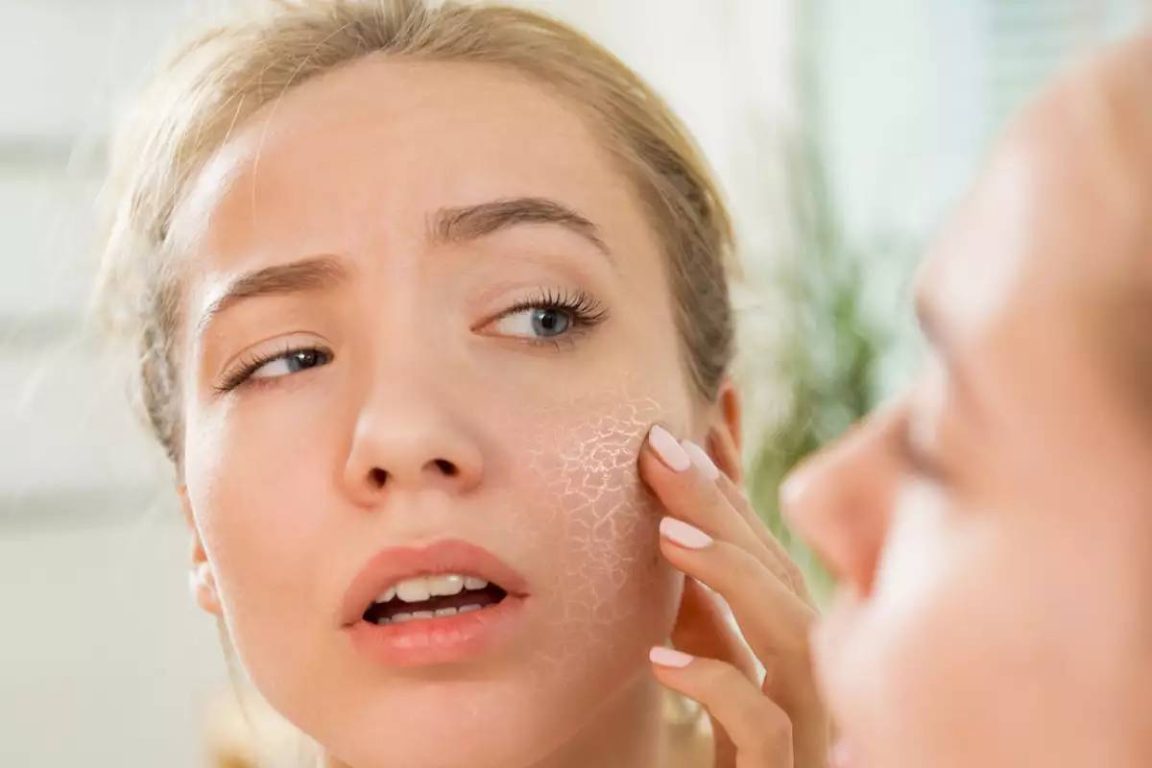Overview of Dry Skin on the Body
Dry Skin on the Body – Dry skin makes the skin look rough, itchy, flaky or scaly. The location where these dry patches form varies from person to person, and it’s a common condition that affects individuals of all ages. Dry skin, which is also known as xerosis or xeroderma, has many reasons, such as cold or dry weather, sun damage, rough soaps, and overbathing. You can do a lot to improve dry skin, such as including moisturizing and also practicing sun protection year-round. Try various crops and skin care routines to find an approach that works for you.
Symptoms of Dry Skin on the Body
Dry skin is frequently temporary or seasonal — you strength get it only in winter, for instance — or you might need to treat it long-term. The signs and symptoms of dry skin might vary based on age, healthiness status, skin tone, living environment and sun exposure. They include:
- A feeling of skin tightness
- Skin that feels and looks rough
- Itchiness (pruritus)
- Slight to severe flaking skin, which reasons an ashy look that can touch dry brown and black skin
- Slight to plain scaling or peeling
- Cracked “dry riverbed” look to the leg
- Fine lines or cracks
- Skin that choices from reddish on white skin to greyish on brown and black skin
- Deep cracks that may bleed
When to see a doctor
Most cases of dry skin reply well to lifestyle changes and home remedies. You may get essential help from your primary care doctor or a doctor who concentrates on skin conditions (dermatologist) if:
- You’ve strained self-care steps, but your cyphers and signs remain.
- Your skin becomes irritated or painful
- Your skin becomes dry and thick as a side effect of cancer treatment
- Your condition makes you so unhappy that you’re losing sleep or are distracted from your everyday routines
- You have open wounds or infections from scratching
- You have significant parts of scaly or peeling skin.
Causes
Dry skin is owing to water loss from the outer layer of the skin. It might be due to the following:
- Heat: Central heating, wood-burning stoves, planetary heaters and fireplaces all reduce humidity.
- Environment: We are living in cold, windy conditions or low-humidity climates.
- Excessive bathing or rubbing: Taking long, hot showers or baths or rubbing your skin too much can dry your skin, and bathing more than once a day can also remove the natural oils from your skin.
- Harsh soaps and detergents: Many popular soaps, cleansers and shampoos take away moisture from your skin because they state to remove oil.
- Other skin conditions: People with skin circumstances such as atopic dermatitis (eczema) or psoriasis are more likely to have dry skin.
- Medical treatments: Some persons develop dry, thick skin after undergoing treatment for cancer, receiving dialysis or taking certain medications.
- Ageing: As people age, the skin thins and crops less of the oils needed for the skin to retain water.
Risk factors of Dry Skin on the Body
Anyone can develop dry skin. But you’re more likely to develop the condition if you:
- Are over 40, as the skin’s aptitude to retain moisture diminishes with age
- Live in cold, windy circumstances or low-humidity climates
- Have a job that needs you to immerse your hands in water, such as treatment or hairstyling
- Use your hands to make an effort with cement, clay or soil
- Swim regularly in chlorinated pools
- Have certain diseases or situations, such as hypothyroidism, diabetes or malnutrition.
Conclusion
Dry skin makes the skin look rough, itchy, flaky or scaly. The location where these dry patches form varies from person to person. These complications are greatest likely to occur when your skin’s defensive mechanisms are severely compromised. For example, harshly dry skin can cause deep cracks or fissures, which can open and then bleed, providing an avenue for invading bacteria.

